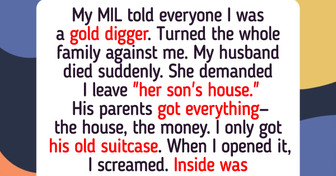I Refused to See My Mother-in-Law After Postpartum Fat-Shaming
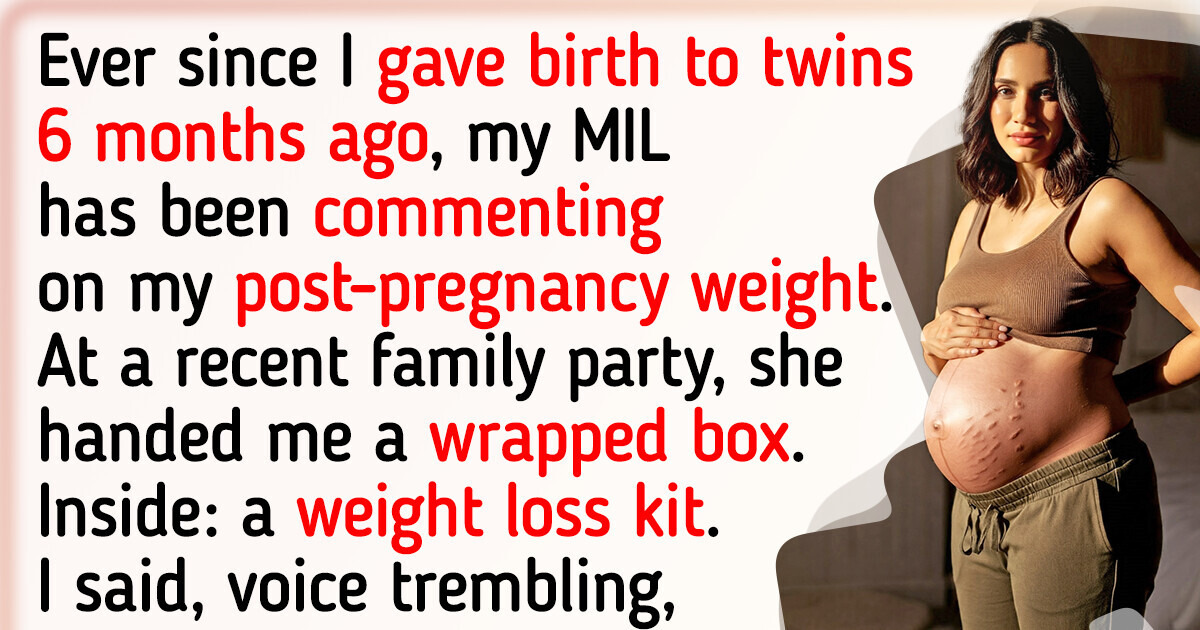
We’ve all been there: a family gathering gone awry, leaving you questioning your actions and everyone else taking sides. But what happens when the drama involves a deeply personal issue like postpartum body image, and the offender is your own mother-in-law? Today, we delve into Sally's story of a "gift" that opened a Pandora's box of hurt feelings, family conflict, and a whole lot of unanswered questions.

I think, I can never earn over which I paid by my precedent employer, but I was wrong, world is so large to try their fate. but now I am making $52/h even more,and easily earn minimum $1300/week, on the experience everyone must try to do work online, easy way to earn, here's an example.
𝐰𝐰𝐰.Richnow05
Your Postpartum Body Is Not Up for Debate.

Your letter struck a chord with us here at the editorial desk. Your experience with your mother-in-law's insensitive "gift" and your husband's misguided defense is, unfortunately, all too common in a society that places undue pressure on new mothers to "bounce back" after childbirth. Let's talk about why this matters and what you can do about it.
The pressure cooker of new motherhood and body image after pregnancy

Bringing a child into the world is a beautiful, life-altering experience. But it's also incredibly demanding, both physically and emotionally. New mothers face a barrage of challenges, from sleep deprivation and hormonal fluctuations to the overwhelming responsibility of caring for a tiny human.
On top of all that, society bombards them with messages about "snapping back" and regaining their pre-baby body. This pressure can be incredibly damaging to a new mother's mental and physical health.
Here’s why you’re not in the wrong:

- Your feelings are valid: It's completely understandable that you felt humiliated and angry. Diane's "gift" was a public display of criticism disguised as concern. It's okay to feel hurt and to express those feelings, even if it means disrupting a social event.
- Your body, your timeline: You are under no obligation to lose weight on anyone's schedule but your own. Your focus should be on your health and well-being, not on fitting into your pre-pregnancy jeans.
- You deserve respect: Diane's dismissive comments about your hormones further invalidate your feelings and demonstrate a lack of respect for your experience.
- Noah needs a wake-up call: It's concerning that your husband prioritized his mother's feelings over yours. He should be your biggest supporter, especially during this vulnerable time.
The weight of expectations

You've just accomplished something incredible—you brought twins into this world! Yet instead of basking in the glow of new motherhood, you find yourself subjected to unsolicited comments about your body. This isn't just a personal slight; it's a symptom of a broader cultural obsession with women's appearances, particularly after pregnancy.
Recent research has shown a strong link between internalized weight bias and postpartum depression. In other words, when you absorb those negative attitudes about your weight, you're more likely to experience depressive symptoms. This is especially true if you've retained some of the weight gained during pregnancy. So when your mother-in-law criticizes your body, she's not just being rude—she's potentially contributing to a serious mental health issue.
The impact of weight stigma

That weight loss kit wasn't a gift, Sally. It was a manifestation of weight stigma that many women face, and it can lead to unhealthy coping mechanisms like emotional eating or extreme dieting. Being publicly criticized for your body during a family gathering isn't just painful—it's harmful.
Studies have shown that postpartum weight retention is significantly associated with both internalized weight bias and depressive symptoms. This means that when you struggle with body image issues, it can create a vicious cycle of self-criticism and depression. The pressure to regain your pre-baby body isn't just unrealistic—it's potentially dangerous to your mental health.
Navigating family dynamics

Your husband Noah's reaction complicates things further. His defense of his mother's actions shows how deeply ingrained these societal norms are, even within families. Instead of supporting you during this vulnerable time, he's inadvertently perpetuating the stigma by prioritizing his mother's feelings over your emotional well-being. This is a common dynamic, but it's one that needs to be addressed.
So, what can you do, Sally?

- Prioritize communication with Noah: Have an open and honest conversation with your husband about how his mother's actions and his reaction made you feel. Explain why postpartum fat-shaming is harmful and why his support is crucial. Use "I" statements to express your feelings without placing blame. For example, say "I felt hurt and unsupported when you defended your mother's actions" instead of "You always take her side."
- Set boundaries with Diane: Make it clear to your mother-in-law that her comments about your weight are unacceptable and that you will not tolerate being shamed. Be firm and direct, but avoid being accusatory. You could say something like, "Diane, I appreciate that you might be concerned, but I need you to stop commenting on my weight. It's hurtful and it makes me uncomfortable."
- Focus on self-care: Surround yourself with people who uplift and support you. This is a time to prioritize your mental and physical health. Consider joining a support group for new mothers or seeking therapy to help you process your emotions and build coping strategies. The Postpartum Support International website offers resources and support for postpartum women.

Remember, Sally, you are not alone. Many women experience postpartum fat-shaming. It's important to remember that your worth is not defined by your weight. You are a strong, amazing woman who has brought two new lives into the world. Focus on your beautiful babies and your own well-being.

Looking for more real, unfiltered stories about postpartum bodies? Check out our next article, where one brave mother reveals her journey through the highs and lows of post-pregnancy life. From stretch marks and weight fluctuations to emotional struggles and societal expectations, she tells it like it is—no sugarcoating, just raw, honest truth. Her story is a must-read for any mother navigating the complexities of postpartum life. Don’t miss it!
Have you experienced postpartum fat-shaming or pressure to lose weight after childbirth? Share your story in the comments below.
Comments
Related Reads
I Refused to Share My $400K Lottery Winnings With My Family
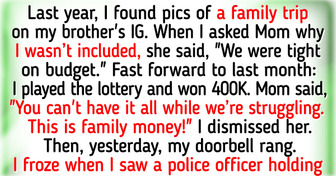
10+ Stories That Prove Parents Would Risk Anything for Their Kids
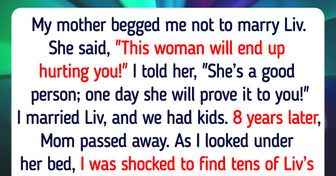
My Husband Was Silent When His Mother Was Berating Me and Insulting Our Child
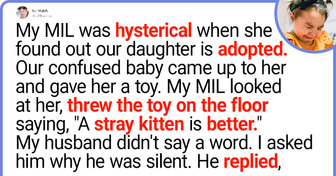
14 Crushing Secrets That Tore Lives Like a Tornado

When My Cousin Proposed at My Wedding, I Knew Exactly How to Steal the Show
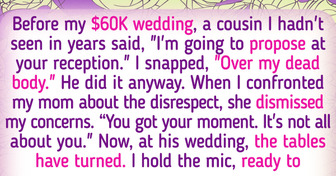
16 Stories About Family Members Who Had a Few Skeletons in the Closet
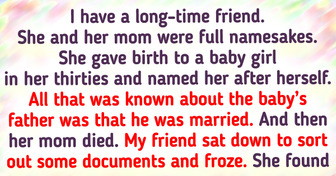
36 Celebrities Who Look So Much Alike, It’s Eerie

10 Stepchildren Who Opened Their Hearts to Love Again
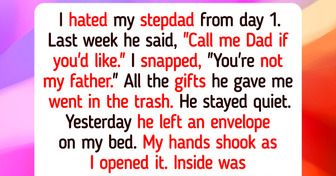
I Got Fired for Refusing to Let My Boss Humiliate Me in Front of Everyone
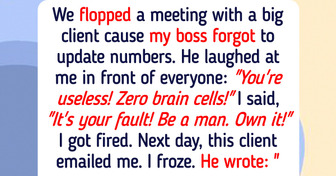
I Refuse to Care for My Daughter’s Baby, I’m Not a Free Childcare Center
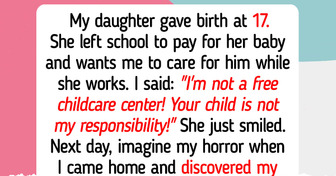
13 Teachers Who Didn’t Just Teach a Subject, They Rescued a Soul
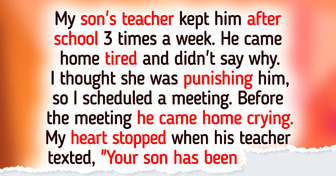
15 Times Someone Showed Kindness Without Saying Anything
